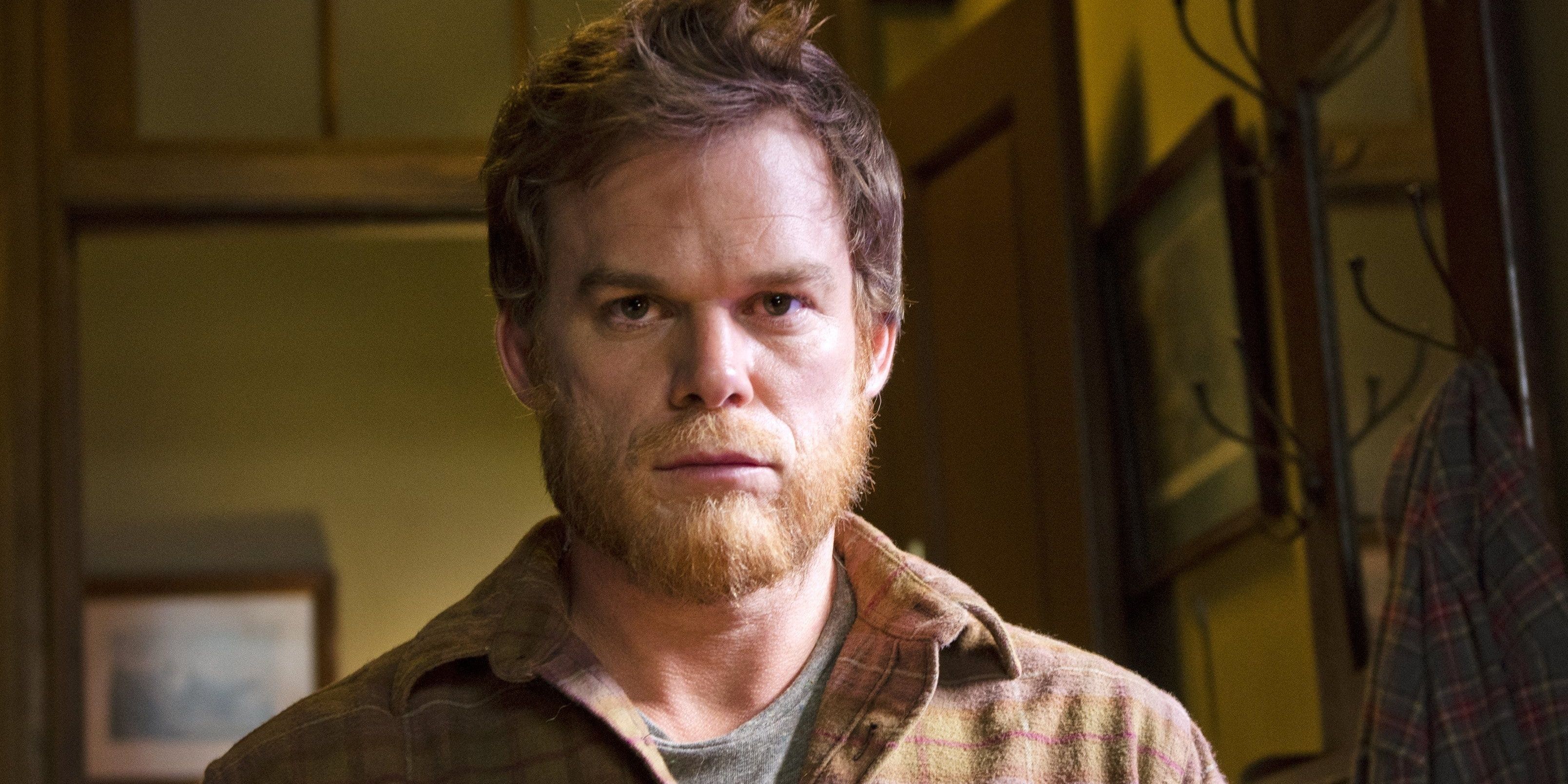The Dexter reboot is set for this year, but here's why season 9 of the bloody dramedy can't just retcon the original, widely hated series finale. For seven years, the show followed Michael C. Hall as serial killer Dexter Morgan. Though driven by an innate compulsion to kill, he was a surprisingly likable protagonist. Using a moral code imparted by his adoptive father, he channeled his bloodlust into hunting down other murderers. Dexter's character blurred moral lines; he was a killer, but somehow, he wasn't a completely bad guy.
This morally relative violence, and all of the trappings that came with it, were what kept the show going for eight whole seasons. But legions of fans were crushingly disappointed by 2013's controversial Dexter series finale. In a wild twist of events, the titular killer ended up faking his death, fleeing Miami, and leaving his son, Harrison, with trusted ally Hannah McKay. Dexter was shown living a new life as a lumberjack, and the show abruptly ended.
Of course, a looming question has been whether or not the reboot will acknowledge the famously disliked ending. After all, the show could retcon the events in order to correct past wrongs and keep driving the series in a fresh direction. But according to showrunner Clyde Phillips on a 2020 episode of THR's TV's Top 5 podcast, "We’re not undoing anything. We’re not going to betray the audience and say, ‘Whoops, that was all a dream.’ What happened in the first eight years happened in the first eight years." And this is certainly the right move, as what happened in Dexter's eight original seasons was what earned the allegiance of countless fans and generated such a noisy buzz within pop culture. In fact, touching on and dealing with the aftermath of the show's original events, specifically its ending, can help amend some of what went wrong, and even aid in the show's overall growth.
Phillips seemed to feel the same way in the TV Top 5 interview, saying about the original finale, "This [reboot] is an opportunity to make that right." And, of course, fans can only get this catharsis if Dexter's original ending and overall past are addressed. In addition to retroactively fixing pieces of the past, dealing with them smartly can also make them far weightier. For example, the finale left it open-ended as to whether or not Dexter was able to overcome his "Dark Passenger," which is what he called his compulsion to kill. After watching the teasers for the return series, it's now clear that this wasn't something he could escape forever. He wasn't able to save himself from what sent him into self-imposed exile. With eight seasons' worth of the main character's backstory and psychology already laid out, revelations like this one will be even more tragic.
Additionally, judging by the teaser that popped up on Father's Day, the unknown fate of Dexter's son, Harrison, after the finale is another component that will come back into play and is rife with possibilities. After all, the ways in which he coped with such profound abandonment were never shown. As questions are answered, mistakes are corrected, and characters and plot pieces grow, the pressure to get the highly anticipated, much darker Dexter reboot "right" is high. But, with the past in mind, the revival is also a chance for the already well-done show to keep improving.


